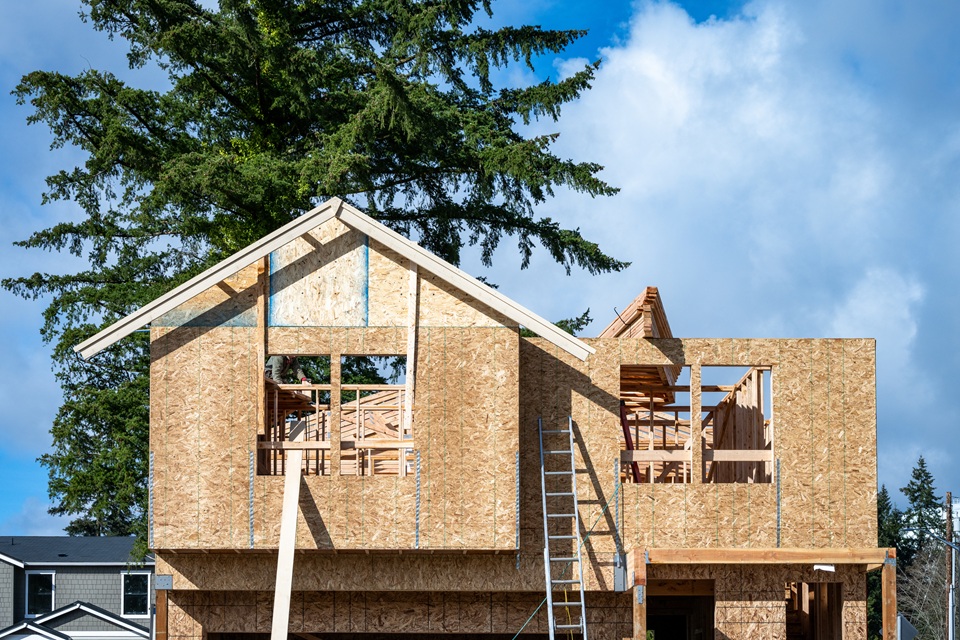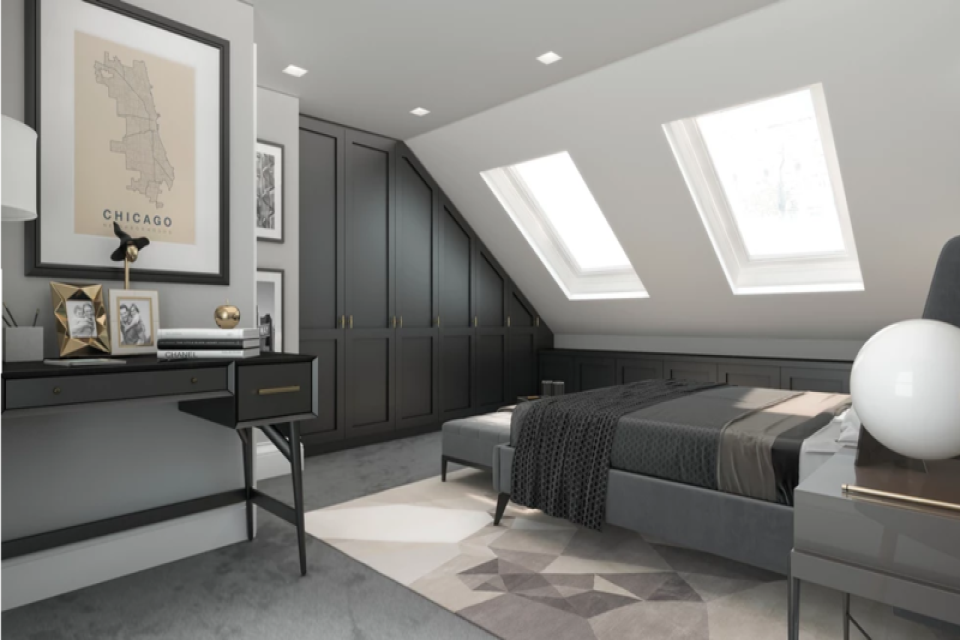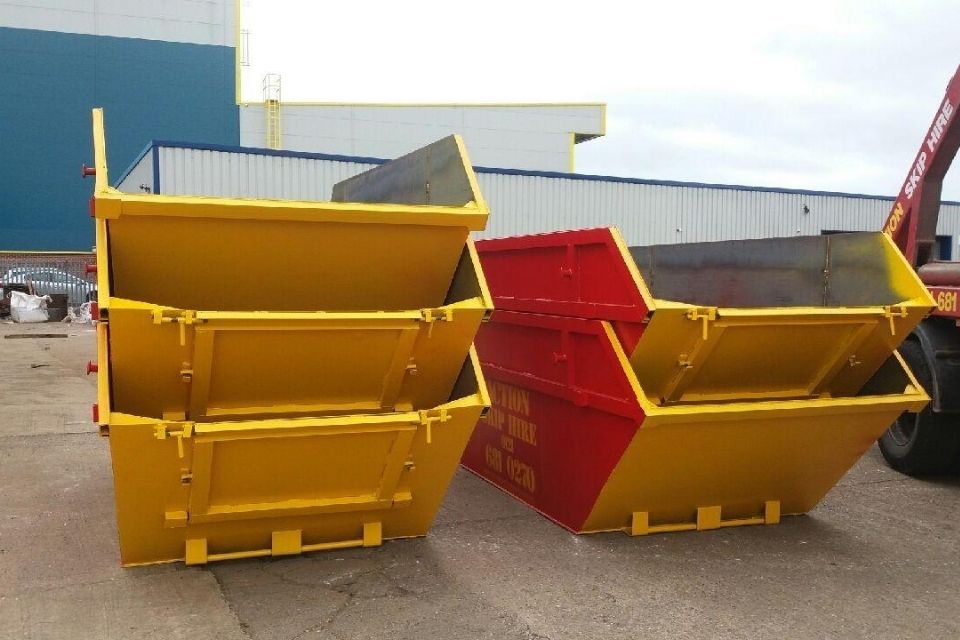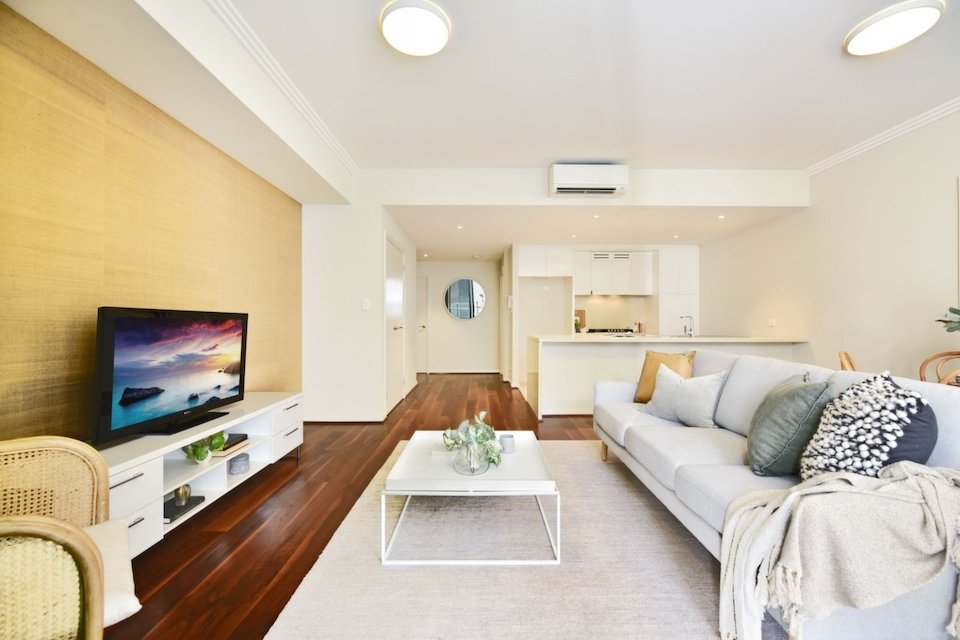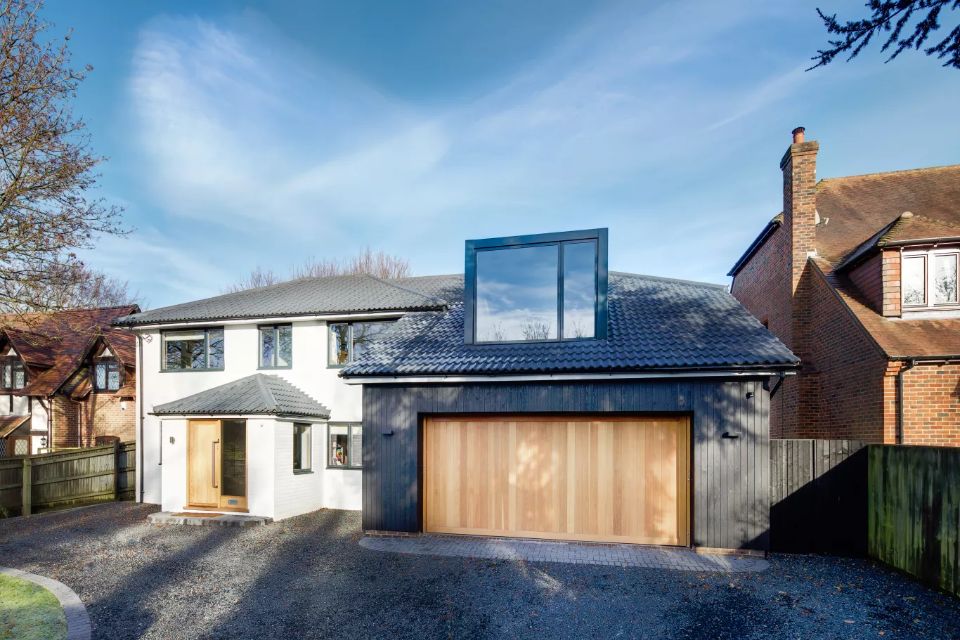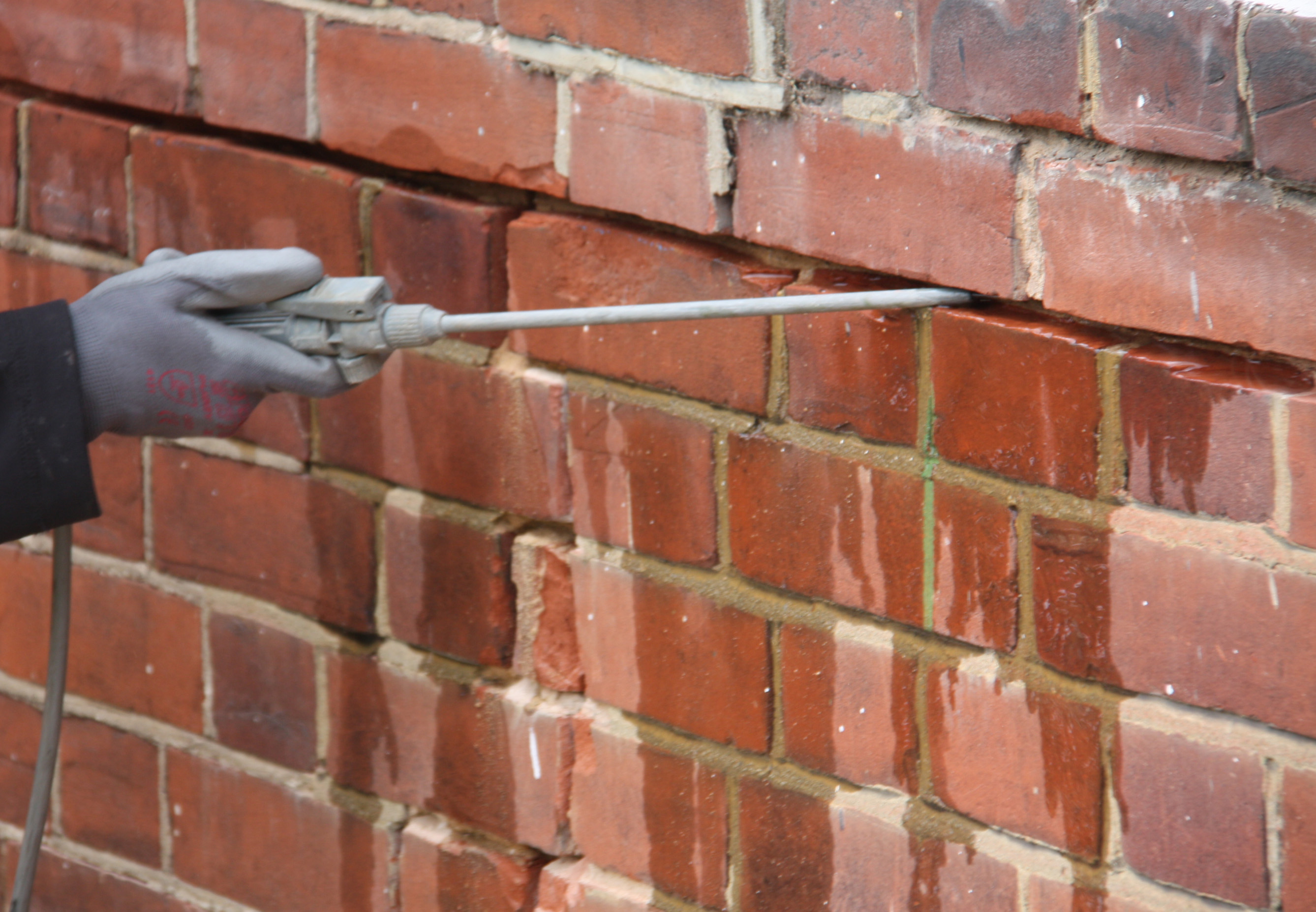How Much is a Timber Frame Extension?
Timber frame extensions are becoming ever more popular in the UK due to their fast construction times, incredible energy efficiency, fantastic sustainability benefits and their structural stability.
No matter whether you are extending a kitchen, adding another bedroom, or even building a double-storey extension, timber frame is a great solution and method of construction. However, it is crucial that you fully understand the costs of this type of extension, along with all the potential additional costs.
This guide will delve deeper into everything relating to the cost of a timber frame extension, ranging from materials and labour costs to additional costs and finishes.
The overall price of a timber frame extension will vary based on a number of factors, most notably, size, design complexity, location, and the quality of materials used. On average, you can expect to pay between £1500 and £2500 per m².
Additionally, timber frame extension builds are often selected for their sustainability and environmental credentials. As such, they use renewable resources and can also be constructed with very minimal waste.
Their lightweight design also reduces the environmental impact of foundations and transport. These attributes, combined with high energy performance, make timber extensions an attractive investment.
- How Much is a Timber Frame Extension?
- Timber Frame Extension Prices
- What are the Supply Costs for Timber Frame Extensions?
- What are the Additional Costs of a Timber Frame Extension?
- Costs for Timber Frame Extension Construction
- How Long Does It Take to Build a Timber Frame Extension?
- Types of Timber Frame Extensions
- How Much Does It Cost to Remove a Timber Frame Extension?
- FAQs
Timber Frame Extension Prices
Below is a guide to the average cost of common types of timber frame extensions in the UK. These estimates include both supply and labour.
| Type of Extension | Size (m2) | Cost per m2 | Total Estimated Cost |
|---|---|---|---|
| Single-storey rear extension | 20-30 | £1500 - £2000 | £30,000 - £60,000 |
| Double-storey side extension | 40-50 | £1500 - £2500 | £60,000 - £125,000 |
| Wrap-around extension | 50-70 | £1700 - £2000 | £85,000 - £140,000 |
| Loft or upward extension | 30-50 | £2000 - £2500 | £60,000 - £125,000 |
Of course, the total cost will vary on a number of factors such as the full level of the internal finish, the complexity of the structure you wish to install and the region of your home.
For example, homeowners in the South East and London will pay around 20% more for labour than those in the North or in Scotland, purely down to the cost of living and demand for trade in those areas.
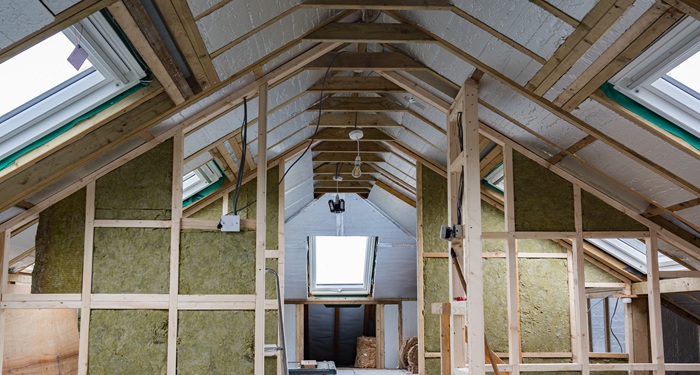
What are the Supply Costs for Timber Frame Extensions?
It will come as no surprise that a large portion of the overall cost of a timber frame extension comes from the materials alone; this refers to the supply costs of the timber, along with any necessary fixings and brackets, amongst other things.
The backbone of any timber frame extension is the prefabricated timber frame panels, and costs for these range from £30 - £70 per m², depending on whether these panels are open or closed, which we will cover off in more detail a little later in the guide. High-quality insulation is essential for energy efficiency, costing £10 - £30 per m².
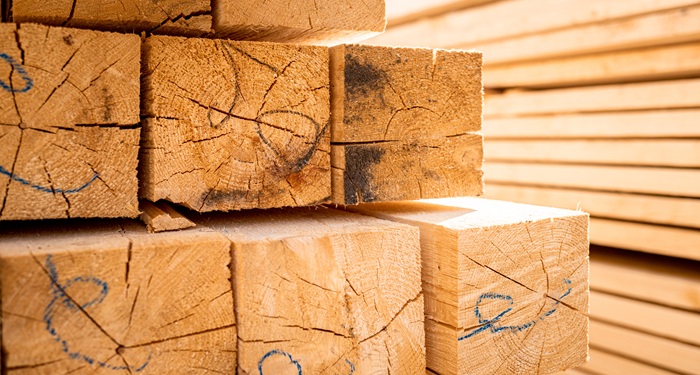
Looking to the external cladding, timber, render or brick slips will be required, and these vary quite greatly in price from £30 to £100 per m².
Looking next to roofing materials, another essential element of the extension, costs between £45 - £95 per m², depending on the style and pitch. Windows and doors, typically double or triple-glazed, range from £400 - £800 each. Fixings and structural supports such as screws, joist hangers and steel beams usually total between £200 - £500.
On top of all this, you will also need to include vapour barriers and membranes, which are utterly crucial to the moisture resistance and airtightness of the structure. This will prevent things like mould, while also increasing the thermal efficiency of your extension. These cost around £5 - £15 per m².
Timber treatments and fire retardants may also be required for compliance, adding around £200 - £500 to the overall material bill.
A huge factor in the cost of supplies for a timber frame extension is the type of timber that you opt for. Softwoods are far more affordable, but they are also less durable, being more liable to damage and moisture issues.
Hardwood, on the other hand, is much more durable and will increase the longevity of your structure, but you will pay a premium for that higher quality timber. Sustainably sourced and engineered wood products may also carry a premium, especially if they meet FSC or PEFC certification standards.
What are the Additional Costs of a Timber Frame Extension?
Moving on from the supply-only costs, let's now look at the potential additional costs when it comes to timber frame extensions.
The first, and most important aspect of the additional fees, is planning permission. In England, this typically costs £202 for most home extensions.
From here, you will need building regulation approvals, which can range from £500 to £900, depending on the size and complexity of the extension.
These steps are crucial to the project, as you will be liable to massive fines and costly restoration work if you build an extension without the correct approvals in place from the outset.
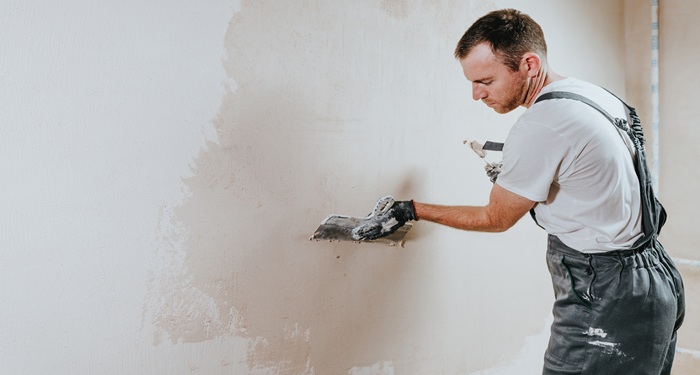
For keen planning of your extension, you may need to attain some architectural drawings that map out the extension in detail - these generally cost between £700 and £2,500.
Similarly, structural calculations and reports fall between £450 - £950, and you may also need a party wall agreement, especially in terraced or semi-detected homes, with costs ranging from £700 - £1,500.
Next, consider the cost of installing utilities - electrics cost £30 - £50 per m², plumbing at £20 - £50 per m², and heating systems such as radiators or underfloor heating costing £400 - £1,200 per room.
For internal finishes like plastering, you will pay £20 - £30 per m², painting and decorating typically total £600 - £1,500, and flooring ranges from £25 - £80 per m², depending on the chosen material.
Custom kitchen installations or bathroom suites can significantly increase final costs, so bear this in mind if you are utilising the extension as a kitchen or bathroom.
External works may include patios and paths, which cost £80 - £200 per m², and landscaping or fencing ranging from £500 - £2,500, depending on the scope. Drainage systems or retaining walls may be required, particularly on sloped plots or areas with poor water run-off.
Waste removal and site preparation typically include skip hire at £200 - £400 per skip and site clearance at £500 - £1,500, depending on ground conditions. If foundations require significant excavation or piling, this can add £1,000 - £5,000. See the general pricing for skips and more information here:
Costs for Timber Frame Extension Construction
Now that we’ve covered the cost of supply and materials, and the potential additional costs related to having a timber frame extension, let's take a look at the cost of tradespeople and labour.
It cannot be overstated how crucial it is to enlist the help of a trained professional when it comes to a timber frame extension; this is not an area to cut costs.
You will need a team of skilled tradespeople to complete your extension, with builders usually charging £150 - £200 per day, joiners or carpenters £160 - £200 per day, electricians £150 - £200 per day, and plumbers £140 - £180 per day. Roofers typically cost £150 - £200 per day, and plasterers around £140 - £160 per day.
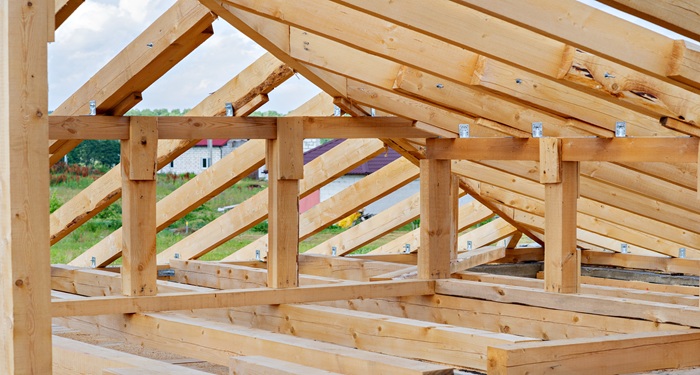
A typical extension, which is generally a single-storey extension, will take around 4-6 weeks to complete, with larger or more complex timber frame extensions taking more like 8-12 weeks, or even longer.
As such, labour alone can cost anywhere from £15,000 to £40,000 for the entire project, depending on the size and complexity of the project, and the region you live in. Be sure to budget for site management and contingency costs too, typically 10–15% of the project.
This is an unavoidable and completely necessary cost, and while it may seem like a lot, it is almost impossible to complete otherwise unless you are a tradesperson yourself.
How Long Does It Take to Build a Timber Frame Extension?
One of the key selling points of timber frame extensions is that they are much faster to construct than traditional brick and block constructions, along with being much cleaner. See the table below for typical durations of construction:
| Type of Build | Estimated Duration |
|---|---|
| Small single-storey | 4-6 weeks |
| Large single-storey | 6-8 weeks |
| Double-storey | 8-12 weeks |
| Wrap-around or complex | 10-16 weeks |
Bear in mind that there are often delays when it comes to any external construction work. The weather alone can put a halt to work, and lead times on materials and products can also extend the duration of the construction.
However, as most of the elements with a timber frame extension are prefabricated, the onsite time is far reduced, which helps to minimise those frustrating delays.
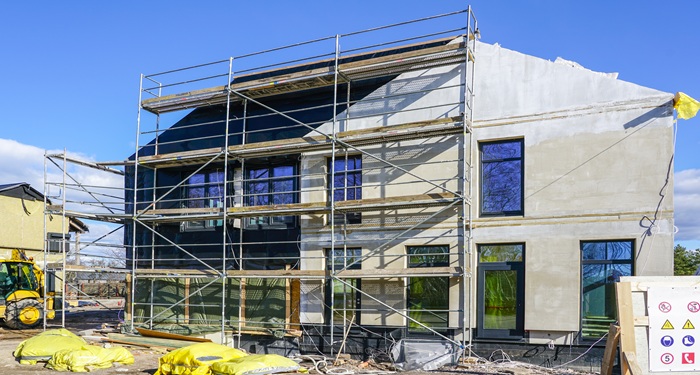
Types of Timber Frame Extensions
There are several different methods and systems used for timber frame constructions, and each has its own pros and cons, along with its own pricing.
Open panel timber frames are made up of timber studs with an open space for insulation to be added on site, along with the integration of services. The total cost for this type of timber frame extension is around £1500 - £2000 per m².
The key selling points for open panel are affordability and flexibility with onsite insulation additions. However, due to more work on site, this does reduce the speed of construction slightly.
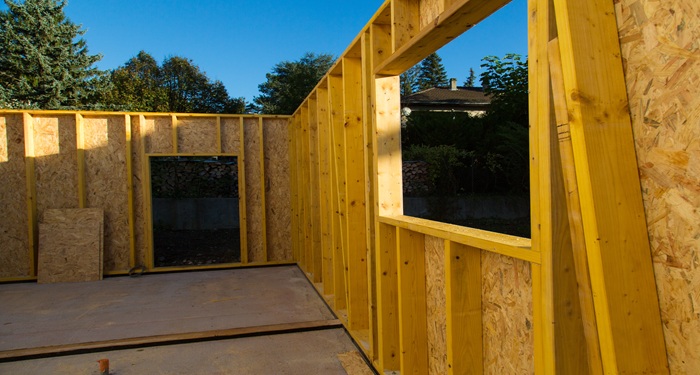
Closed panel systems arrive on site having already had insulation loaded, and the panel pre-boarded off site, which allows for much faster fitting - they cost between £1600 and £2200 per m².
The key advantages of closed panel systems are much faster installation, but also much better air tightness due to the precision engineering in factory settings during the prefabrication process. However, they are much less flexible for incorporating services onsite, and are generally more expensive.
SIPs or Structural Insulated Panels are high-performance panels with built-in insulation, costing £1700 - £2500 per m². A bolstered version of closed panel systems, they offer excellent thermal performance and fast builds but require specialist trades and come with a higher price tag.
Post and beam timber frames use large structural beams for a traditional look and robust build. Costs range from £1800 - £2500 per m². They offer a high-end aesthetic and strength, but require skilled labour and take longer to build.
Each system has its own set of advantages and disadvantages. The right choice for you generally boils down to budget, aesthetics and timescales, along with the space and conditions on site.
How Much Does It Cost to Remove a Timber Frame Extension?
If you are removing an existing timber frame extension, maybe due to structural issues or layout changes, the demolition and dismantling costs range from £2,000 - £5,000, while waste removal may add £500 - £1,500.
Refurbishing the site back to a good standard can cost anywhere between £500 and £2,000, which usually involves levelling and turfing or tiling.
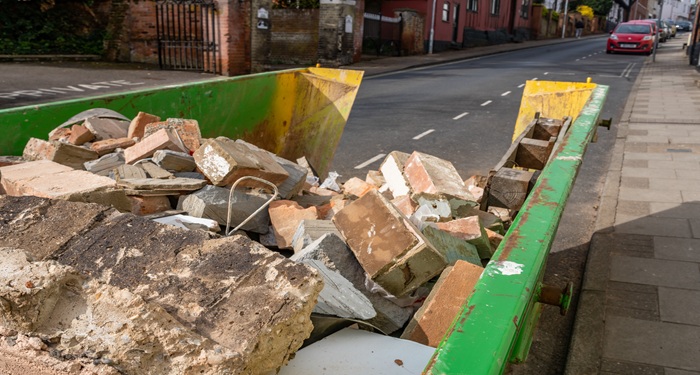
In total, removal costs typically fall between £3,000 and £8,500, depending on size, access, and disposal requirements. If you’re planning a rebuild, some salvageable materials might reduce overall costs.
FAQs
Q: Are timber frame extensions cheaper than brick extensions?
A: Yes, in general, timber frame extensions are cheaper than brick extensions. Not only are they cheaper, but they also offer much better thermal performance in the majority of cases, and they are installed far quicker.
Q: Do I need planning permission for a timber frame extension?
A: With planning permission, it always depends on the size and location of your extension. Most extensions fall under permitted development, but you should always check this with your local authority at the earliest possible opportunity to ensure you are doing everything in line with regulations.
Q: How long do timber frame extensions last?
A: Timber frame extensions are durable and built to last, meaning you can certainly expect them to last in excess of 50 years.
Q: Can I extend a timber frame house upwards?
A: Timber frame extensions are very versatile, and as such, double-storey extensions or additions are possible. Of course, you will need to have a structural assessment completed to ensure that everything will be safe and under regulation, but due to the lightweight nature of timber frame, this offers you the most likely solution.
Q: Are timber frame extensions energy efficient?
A: Timber frame extensions with the correct insulation and airtight construction will always outperform traditional build methods and materials due to the high thermal performance of the systems. Timber itself is a great material for thermal efficiency, but also allows for a lot of insulation within the panels, which bolsters it further.

